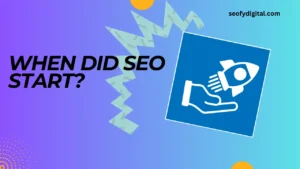In today’s SEO landscape, crafting content that ranks high on search engines means understanding the way people search. No longer are people typing single keywords; instead, they’re using phrases that reflect specific questions, needs, and topics.
So, a critical question arises: can SEO keywords actually be phrases? The simple answer is yes, and it’s not only possible—it’s essential. With search engines getting smarter and the rise of voice search, people now use conversational phrases to search for information, products, and solutions.
This shift requires content creators to focus on keyword phrases rather than single keywords. A single-word keyword, like “marketing,” could attract a broad audience, but not necessarily the right one. However, a phrase like “effective marketing for small businesses” targets a specific audience, intent, and context, bringing in more relevant and engaged users.
This article explores why keyword phrases are critical in today’s SEO and how to identify, use, and benefit from them. By shifting your focus to keyword phrases, you’ll align your content with what users are truly looking for, and in doing so, you’ll boost your visibility and effectiveness in search results.

Contents
1. Understanding Keyword Phrases
Keyword phrases, often called long-tail keywords, are groups of words or short phrases that represent more specific search queries. Unlike a single keyword, which is broad and highly competitive, keyword phrases are longer and targeted, allowing you to capture specific intent.
For example, “digital marketing” is a short keyword, but “best digital marketing strategies for beginners” is a keyword phrase that brings more precision.
Types of Keyword Phrases:
- Short-tail keyword phrases: These contain two or three words, like “SEO tips” or “digital marketing tools.” They have higher search volume but more competition.
- Long-tail keyword phrases: These are longer and more specific, like “best SEO tips for small business owners.” They may have lower search volume but face less competition and often bring in more engaged users.
With keyword phrases, it’s essential to think about user intent. Search engines aim to understand what users are looking for when they type a query. A phrase like “how to create a marketing plan for startups” implies a specific need. By targeting phrases, you address a user’s exact query, leading to more meaningful connections with your audience.
2. The Benefits of Using Keyword Phrases
Using keyword phrases is highly beneficial in today’s SEO because of three main reasons: higher rankings, a better user experience, and increased conversions.
- Higher Search Engine Rankings: Keyword phrases, particularly long-tail ones, tend to have lower competition compared to single-word keywords. By targeting specific phrases, you stand a better chance of ranking higher, even in competitive niches.
For instance, ranking for “best beginner SEO tools for bloggers” is more feasible than competing for just “SEO tools.” - Better User Experience: When users find content that directly addresses their query, they’re more likely to stay on the page and engage with it, which lowers bounce rates and improves rankings. Keyword phrases help you craft relevant, targeted content that speaks directly to the searcher’s needs.
- Increased Conversions: Since keyword phrases draw in targeted traffic, the users arriving on your page are already looking for a solution. A keyword phrase like “affordable SEO services for small business” attracts visitors who are ready to invest in SEO services, leading to higher conversion rates compared to broad keywords.

3. How to Identify Effective Keyword Phrases
Identifying valuable keyword phrases requires a combination of tools and strategy.
- Keyword Research Tools: Tools like Google Keyword Planner, Ahrefs, and SEMrush can help you identify keyword phrases with high potential. Google Keyword Planner provides insights into search volume, competition level, and suggested keywords, while Ahrefs and SEMrush allow you to analyze competitor keywords and find phrases that will work well for your niche.
- Semantic Search: Modern search engines use semantic search to understand the broader context of keywords. This means search engines look beyond the exact words to grasp their meaning and intent. For example, “how to boost website traffic” and “ways to increase website traffic” may yield similar results because search engines recognize the similarity in intent.
- User Intent: Consider the intent behind the search. If the user searches “buy organic skincare products,” they are likely ready to make a purchase. Understanding these nuances allows you to choose phrases that attract users ready to take action.
4. Incorporating Keyword Phrases into Your Content
After identifying your keyword phrases, effectively incorporate them into your content using on-page and off-page SEO practices.
- On-Page SEO: This includes optimizing elements within your webpage itself. Add keyword phrases to your title tags and meta descriptions to make your content visible in search results.
Use phrases naturally within header tags (H1, H2, H3) to structure your content, making it easy for both users and search engines to understand. Additionally, including keyword phrases in alt text for images boosts your SEO and makes your site accessible. - Off-Page SEO: This involves building backlinks and promoting content on external sites. Seek out quality backlinks from credible sites that use relevant phrases to link back to your content. Social media also plays a role here; sharing content with keyword phrases on platforms helps create signals that search engines recognize as relevant.
In both cases, balance keyword usage with natural, engaging content. Overloading pages with keyword phrases (keyword stuffing) hurts SEO and makes content difficult to read. Focus on readability and quality.
5. Advanced Tips for Optimizing with Keyword Phrases
To further optimize with keyword phrases, consider local, mobile, and voice search strategies.
- Local SEO: If you’re targeting a specific area, integrate local keyword phrases. For instance, “digital marketing agency in Los Angeles” performs better locally than a general keyword phrase. This can attract audiences specifically looking for services near them, enhancing relevance and engagement.
- Voice Search Optimization: With the rise of voice assistants like Siri and Alexa, more users now conduct searches using natural language. Voice search queries are typically longer and phrased conversationally, making keyword phrases ideal for this medium.
- Keeping Up with SEO Trends: SEO is constantly evolving, and staying informed about trends ensures your strategy remains effective. Keyword research should be ongoing, as search engines and user behaviors continue to change.
Conclusion
The SEO landscape has evolved from focusing on isolated keywords to embracing keyword phrases, reflecting users’ real intentions and creating a more human-centric approach. By using keyword phrases, you’re not only aligning with search engine algorithms but also offering relevant, engaging content that resonates with audiences.
As you incorporate keyword phrases, keep refining your strategy based on user behavior and SEO trends. Ultimately, SEO isn’t about sticking to single keywords but about crafting content that meets user intent. Keyword phrases open up pathways to connect more meaningfully with audiences and offer the information they truly seek.
FAQs
1. Can SEO keywords be phrases?
Yes, keyword phrases are essential in SEO, especially as search engines focus more on user intent and specific queries.
2. Why are keyword phrases important in SEO?
They allow for more precise targeting, reduce competition, and improve the user experience by addressing specific needs.
3. How do I choose the right keyword phrases?
Use tools like Google Keyword Planner, Ahrefs, and SEMrush to identify phrases with good search volume and relevance to your content.
4. What is a short-tail keyword phrase?
Short-tail phrases contain two or three words, like “SEO tips.” They’re broader and have high search volume but face more competition.
5. What is a long-tail keyword phrase?
Long-tail phrases are detailed, like “best SEO tips for local businesses,” capturing specific intent and often having lower competition.
6. How do I use keyword phrases in content?
Incorporate them naturally into title tags, meta descriptions, headers, and body content. Avoid overloading them to keep content engaging.








